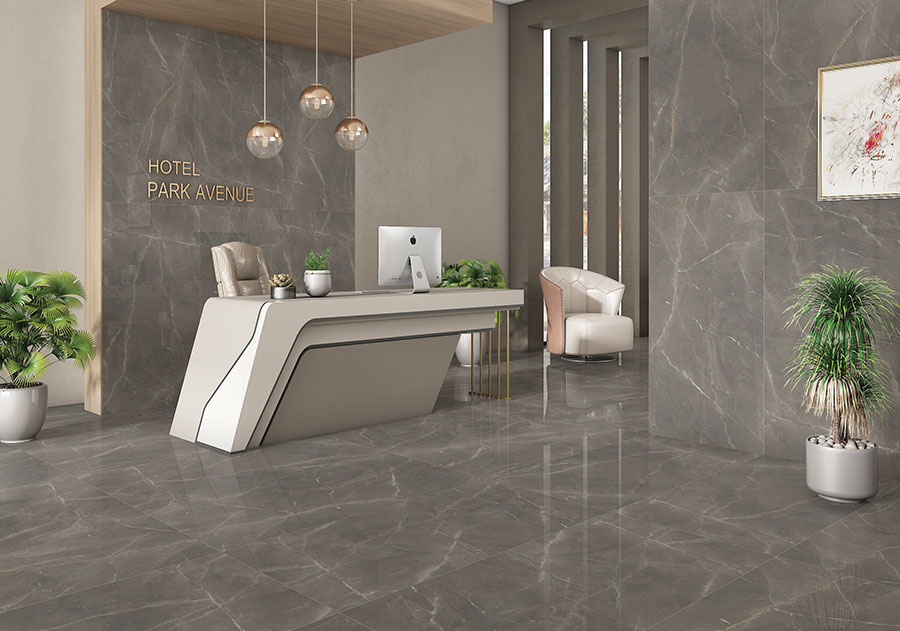
A - Porcelain tiles have become increasingly popular in recent years, thanks to their durability and versatility. These tiles are made from a type of ceramic clay that is fired at very high temperatures, resulting in a tile that is dense, hard, and less porous than other types of ceramic tiles. In this blog post, we will explore the benefits and drawbacks of using porcelain tiles and how they can be used in different settings.
Benefits of Porcelain Tiles:
Durability:
Porcelain tiles are known for their durability, making them a popular choice for high-traffic areas such as hallways, entryways, and kitchens. They are less likely to crack, chip or scratch than other types of ceramic tiles.
Low Maintenance:
Because of their low porosity, porcelain tiles are easy to clean and maintain. They are resistant to stains, moisture, and bacteria, making them a great option for bathrooms and other areas where cleanliness is a priority.
Versatility:
Porcelain tiles come in a wide range of colors, patterns, and finishes, making them suitable for a variety of design styles. They can mimic the look of natural stone, wood, or concrete, or can be used to create unique and modern designs.
Resistance to Heat and Cold:
Porcelain tiles are able to withstand extreme temperatures, making them ideal for use in outdoor areas such as patios and pool decks.
Drawbacks of Porcelain Tiles:
Cost:
Porcelain tiles are generally more expensive than other types of ceramic tiles, due to their durability and high-quality manufacturing process.
Installation:
Porcelain tiles can be more difficult to install than other types of ceramic tiles because they are denser and harder. This can make them harder to cut and may require special equipment or tools.
Slipperiness:
Porcelain tiles can be slippery, especially when wet. This can be a concern in areas where water is present, such as bathrooms, kitchens, and pool decks.
Uses of Porcelain Tiles
Flooring:
Porcelain tiles are a popular choice for flooring because of their durability and low maintenance requirements. They can be used in a variety of settings, from residential to commercial, and come in a range of styles to suit any design aesthetic.
Walls:
Porcelain tiles can be used to create stunning wall designs, whether as an accent or covering an entire wall. They are resistant to moisture and stains, making them ideal for use in bathrooms and kitchens.
Countertops:
Porcelain tiles can also be used for countertops, offering a durable and low-maintenance surface that is resistant to heat and scratches.
In conclusion, porcelain tiles are an excellent choice for those looking for a durable, versatile, and low-maintenance option for flooring, walls, and countertops. While they can be more expensive and difficult to install than other types of ceramic tiles, their benefits far outweigh the drawbacks. With a wide range of colors, patterns, and finishes to choose from, porcelain tiles offer endless possibilities for creating beautiful and functional spaces.